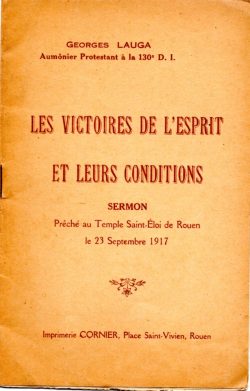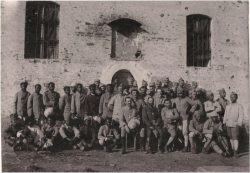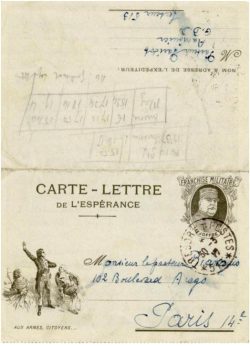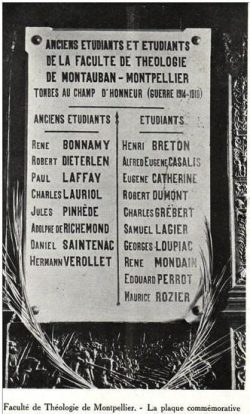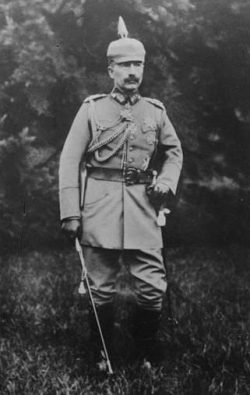Protestant preaching during the Great War
During the First World War French Protestant preachers became radicalised and advocated French patriotism and supposed superiority opposed to German imperialism deemed responsible for the horrors of war. Thus was theological opposition added to military opposition.
The glory of France renewed by the ideals of the Revolution
In their preaching French pastors insisted on pre-war French decadence and on the revival of its humanness since the outbreak of the conflict. Sermons became more radical with the nonchalance of France’s past being forgotten thanks to the heroism of French soldiers. Paradoxically the French Revolution became the main theme for preachers. Pastors were fundamentally republican and saw a direct link between the Revolution and the Third Republic, as both advocated the continuity of the modern values of the Calvinist Reformation.
France as a symbol of humanist and democratic values
French pastors conveyed a glorious image of France, in contrast to German history fraught with mistakes and grim mass murders. They promoted great figures such as Hugo, Zola, Gambetta and Jaurès who inspired and promoted the French spirit of freedom and democracy. In August 1914, Pastor Jean Lafon mentioned ‘the great principles of freedom, equality and brotherhood which changed the face of Europe, and have become with time the charter and safeguard of emancipated peoples.’ France was the figurehead concerning ‘Universal Rights’, and became ‘the teacher of other nations, the vigilant sentinel of a civilization forever threatened by recession.’ Still the most powerful weapon of preachers remained the comparison with German imperialism and the abuses of the regime.
The Kaiser and the German elites heading despotic imperialism
French preachers insisted on the crimes committed by the German imperial regime during the war. The Germans were shown alternately as liars, or cruel and domineering individuals; they were also considered as the barbaric people who started the war. However the Kaiser and the middle-class elite who ruled the empire were the most criticized. The preachers condemned German imperialism for ‘reason of state prevailing over the reason of self-consciousness.’ Wilhelm II was called a ‘modern Cesar’, a ‘bloodthirsty prince’, the ‘emperor of murderers.’ The Kaiser had adopted a violent and aggressive attitude to stress the difference with his predecessors and have his name mentioned in history books…The violent conflict, the authoritarian German regime and diplomatic betrayals for which he was deemed responsable fed the accusations of the French preachers.
German intellectuals serving a ‘decadent’ German Kultur
French pastors were deeply convinced that German intellectuals served pan-Germanism and imperialism advocated by Wilhelm II, as seems to be proven by the ‘Appeal to the civilised world’ signed by 93 German intellectuals on 4 October, 1914. They aimed to reduce the noble notion of Auferklärung (Enlightenment) to a military doctrine; had been blinded by their ‘pride’ rooted in their knowledge and science; and thus would not be aware of their theological error.
In the process, French pastors established an opposition between the pre-war German theology thought, to which they gave credit, and the war-time philosophy which would henceforth focus win the worship of the state.
Progress in the tour
Bibliography
- Documents
- Books
- Articles
Associated tours
-
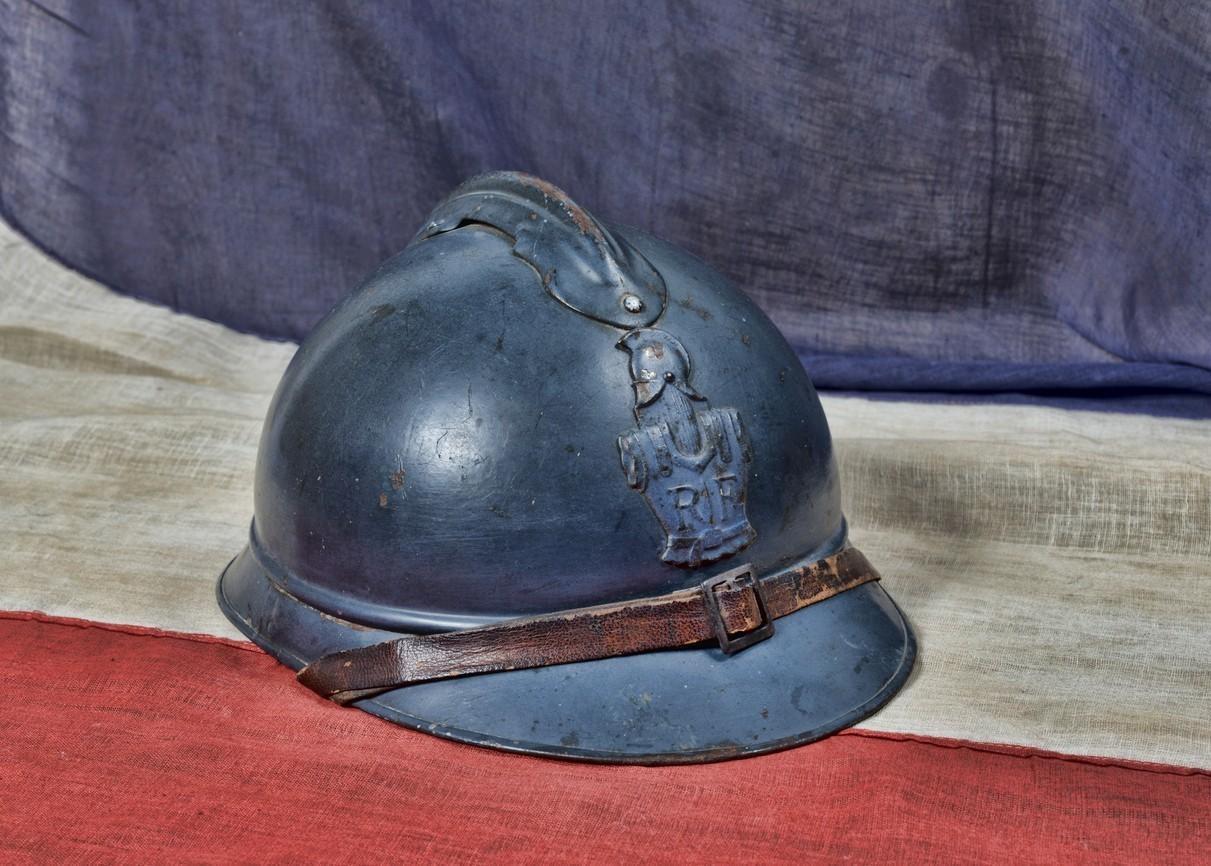
Protestants during World War I
Though the Protestant community represented a minority of the French population, i.e. only 1.6% in 1904 since Alsace-Moselle was lost, it played an important role thanks to its commitments and...

